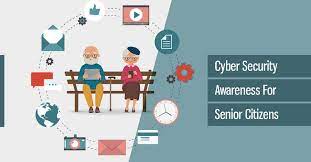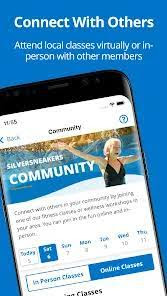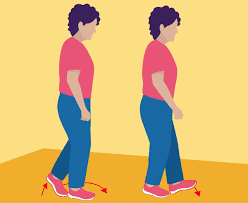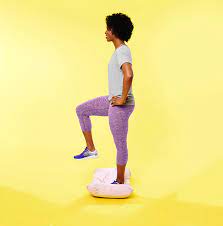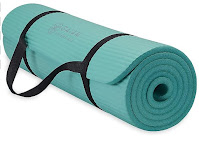The Effect of Holidays on Mental Health:
The holiday season is a time of joy, celebration, and togetherness. For many seniors, however, this time of year can also bring feelings of loneliness and isolation. As family members grow busy with their own lives and obligations, seniors may find themselves without the company they once enjoyed during the holidays. Coping without family can be challenging, but it doesn't have to be a lonely experience. In fact, there are numerous ways for seniors to make the most of the upcoming holiday season and create new memories filled with love and happiness.
One important aspect of making the most of the holiday season is by creating new traditions and activities with family. While some traditions may no longer be feasible or practical due to changing circumstances or physical limitations, it's important for seniors to embrace the opportunity to start fresh. This could involve planning a special holiday meal together or organizing a festive movie night where everyone gathers around to watch classic holiday films. By involving family members in the process, seniors can feel more connected and valued during this special time of year.
Another way for seniors to make the most of the holiday season is by exploring volunteer opportunities and connecting with their community. Volunteering not only provides a sense of purpose but also offers an opportunity to meet new people and give back to those in need. Seniors can consider volunteering at local food banks, homeless shelters, or senior centers where they can engage with others who may also be seeking companionship during this time of year.
Taking care of oneself and finding joy in solitude is another essential aspect for seniors during the holiday season. It's important for seniors to prioritize self-care activities that bring them happiness and peace. This could involve engaging in hobbies such as painting, reading, or gardening. Additionally, practicing mindfulness techniques like meditation or yoga can help reduce stress levels and promote overall well-being.
Creating New Traditions and Activities with Family
The holiday season is a special time for seniors to connect with their families and create lasting memories. It's an opportunity to engage in activities that bring joy, laughter, and a sense of togetherness. One way to make the most of this festive season is by exploring new traditions and activities with family members.
Crafting and DIY Projects
There are plenty of craft ideas that seniors can enjoy with their family during the holiday season. One idea is creating personalized holiday cards or decorations. Seniors can gather supplies like cardstock, glitter, ribbons, and markers to design unique cards that reflect their style and personality. This activity not only brings out their creativity but also spreads joy when they give these handmade items to family members or friends.
Another craft idea is making ornaments for the Christmas tree. Seniors can use various materials such as clay, beads, or even recycled materials like old CDs or bottle caps to create beautiful ornaments. These homemade ornaments add a personal touch to the tree and become cherished keepsakes for future generations.
Cooking and Baking Together
Cooking and baking together during the holiday season can be a delightful experience for seniors and their families. It provides an opportunity to share traditional recipes, pass down family secrets, and bond over delicious food.
Seniors can involve their family members in meal preparation by assigning tasks according to each person's ability. For example, grandchildren can help with measuring ingredients or stirring batter while adults assist with more complex tasks. This collaborative effort not only lightens the workload but also creates a sense of teamwork and togetherness.
When choosing recipes, it's important to consider the preferences and dietary restrictions of everyone involved. Opt for simple recipes that are easy to follow and accommodate various tastes. Classics like gingerbread cookies, apple pie, or roasted turkey are always a hit during the holiday season.
Cooking and baking together is not just about the end result; it's about the process and the memories created along the way. Seniors can share stories behind family recipes, teach their loved ones cooking techniques, and create new traditions centered around food. The aroma of freshly baked goods filling the house and the laughter shared in the kitchen will undoubtedly make this holiday season unforgettable.
By engaging in crafting and DIY projects as well as cooking and baking together, seniors can create new traditions that bring joy and strengthen bonds with their families. These activities provide opportunities for self-expression, creativity, and quality time spent with loved ones. So this holiday season, let's encourage seniors to embrace these activities wholeheartedly and make beautiful memories that will be cherished for years to come.
Exploring Volunteer Opportunities and Connecting with the Community
Volunteering is a fulfilling way for seniors to make a positive impact on their community while also connecting with others. By giving back, they can find a sense of purpose and fulfillment during the holiday season. There are various volunteer opportunities available that cater to different interests and abilities.
Assisting at Local Food Banks or Shelters One meaningful way for seniors to contribute to their community is by volunteering at local food banks or shelters. This not only helps those in need but also provides seniors with a chance to interact with individuals from diverse backgrounds. Volunteering at food banks or shelters allows seniors to witness firsthand the impact they can have on someone's life. From organizing donations to serving meals, there are numerous ways for seniors to get involved. Additionally, many organizations provide training and support, ensuring that seniors feel confident in their roles.
Participating in Community Events and Programs Seniors can also explore participating in community events and programs as a way to connect with others during the holiday season. Many communities organize events such as tree lighting ceremonies, holiday parades, or craft fairs. These events offer opportunities for seniors to socialize with neighbors, friends, and family members who may be visiting for the holidays. Participating in these activities can help combat feelings of loneliness or isolation that some seniors may experience during this time of year.
Moreover, local senior centers often host special holiday programs tailored specifically for older adults. These programs may include festive parties, group outings, or educational workshops. Participating in these activities not only fosters social connections but also provides an opportunity for seniors to learn new skills or engage in hobbies they enjoy.
By exploring volunteer opportunities and participating in community events and programs, seniors can create meaningful connections and experiences during the holiday season. These activities allow them to give back while also enriching their own lives through social engagement and personal growth.
Remember: It's important for seniors to consider their physical limitations and choose activities that align with their abilities. It's always a good idea to consult with healthcare professionals or caregivers before engaging in any new activities.
Taking Care of Oneself and Finding Joy in Solitude
Taking care of oneself and finding joy in solitude is an important aspect of enjoying the holiday season for seniors. Engaging in mindfulness and meditation can be a beneficial practice that promotes relaxation and overall well-being. Mindfulness involves being fully present in the moment, focusing on one's thoughts, feelings, and sensations without judgment. For seniors, practicing mindfulness can help reduce stress, improve sleep quality, and enhance mental clarity.
There are various resources and techniques available for seniors to incorporate mindfulness into their daily lives. Meditation apps such as Headspace and Calm offer guided meditation sessions specifically designed for seniors. These apps provide step-by-step instructions and soothing background music to create a calming atmosphere. Additionally, there are online courses and workshops that teach mindfulness techniques tailored to the needs of seniors.
Enjoying nature and participating in outdoor activities is another way for seniors to find joy in solitude during the holiday season. Spending time outdoors has numerous therapeutic effects on both physical and mental health. Seniors can take leisurely walks in parks or gardens, go birdwatching, or simply sit outside and soak up the sunlight.
Engaging with nature allows seniors to connect with their surroundings, breathe fresh air, and appreciate the beauty of their environment. It also provides opportunities for gentle exercise, which can improve mobility and strengthen muscles. Seniors should consider choosing activities that align with their abilities and preferences to ensure a safe yet enjoyable experience.
In conclusion, the holiday season is a special time for everyone, including seniors. It provides an opportunity to create cherished memories, strengthen family bonds, and find joy in the company of loved ones. By embracing new traditions and activities with family, exploring volunteer opportunities and connecting with the community, and taking care of oneself and finding joy in solitude, seniors can make the most of this festive time of year.













